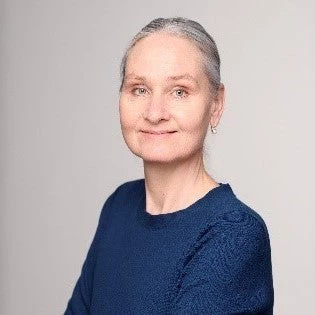As we write this blog, reflecting on the energy and enthusiasm of Innovate4Climate 2021, which took place entirely virtually from May 25–27, we cannot but help reflect on what we have missed: the chance to meet in person, connect face-to-face, and forge new relationships. But if that is on the list of things we miss after this devastating past year, we count ourselves lucky – because this has been such a tremendously difficult time and it still is, in so many of the countries we work in.
Despite this incredibly difficult period – and partly because of the issues COVID has exposed – we’re also seeing innovation and renewed ambition to tackle challenges like climate change, inequality and poverty. That’s why so many of the conversations during last weeks’ Innovate4Climate were particularly inspiring, focusing on solutions that are already delivering low-carbon, resilient opportunities.
Some highlights:
Finance at scale will drive the low-carbon transition
“We are seeing evidence right now in everything we are doing related to how climate risk is becoming investment risk, and we are beginning to see this reallocation of capital”, BlackRock CEO Larry Fink said, pointing to the need to price-in future climate change impacts early on.
Kicking off Innovate4Climate was a conversation with World Bank Group President, David Malpass and Fink ranging from how fiduciary responsibilities for companies can impact investments, to the importance of standards, and how these need to be unified for both private and public sectors. Fink also observed that: “as an investor, as a capitalist, I'm actually very excited about raising capital into investing in these new technologies so we can bring down the green premium and that all parts of the world can participate in this green horizon and we can get to a net zero world”, emphasizing that there is significantly more finance available for low-carbon investments than most realize.
Success comes from combining leadership from the top with inclusive engagement, bringing communities along to shape sustainable development pathways.
If there was one big message that resonated across the three days, it was this: good climate policy puts people at the centre. This was repeated in panels that ranged from looking at carbon pricing and pathways to net zero, to working with communities to reduce deforestation, and to how investors and the private sector can step up and seize opportunities in the circular economy. Jeanne d’Arc Mujawamariya, Rwanda’s Minister of Environment, was unequivocal: “Policies must consider people to ensure an inclusive and equitable transition to Net Zero”.
At the same time, ambitious climate leadership can send clear signals about the direction of travel: for instance, carbon pricing and the signal it would send about clean energy investments, including in developing countries. This was a particularly relevant message given the findings of the latest State and Trends of Carbon Pricing 2021 report, also launched at Innovate4Climate, which found that while over 20% of global greenhouse gas emissions are now covered by a carbon price, the full potential of this policy remains untapped.
Fatih Birol, Executive Director of the IEA put it clearly: “If we leave everything as it is, if the governments do not take any measures such as introducing carbon pricing, clean energy will increase, but the pace of increase is so slow that we have no chance whatsoever to reach our climate goals[…] In order to give the unmistakable signals to investors to invest in these technologies, carbon pricing is a must.”
Innovative solutions abound across sectors, it’s time to step up and invest in them.
Over the three days, a common theme emerged of the kinds of climate-smart solutions – innovations in markets, technologies and policies – that are already out there, helping improve lives and livelihoods in countries at all stages of development. And a clear emphasis also emerged: that it’s time to step up and meet the need of the hour. While governments have a key role to play in driving the low-carbon transition, courageous leadership from businesses could go a long way to bridging the ambition gap between business pledges today and what it will take to reach Net Zero by 2050.
In addition to discussions around low-carbon innovations in energy and transport, a solid emphasis also emerged on agriculture, food and land use: from James Rogers, the CEO of Apeel, sharing his vision for how innovative technologies can reduce food waste and free up money to spend on a food system that looks after people and planet at the same time; to workshops on new tools and technologies that are improving access to weather information, and on how better data is supporting agricultural performance in Kenya.
What Comes Next
Focusing on real world solutions certainly created a positive energy over the three days. Despite missing out on face to face interactions, Innovate4Climate 2021 was our biggest ever: more than 8,000 people from 183 countries registered to tune in over the three days. Over 70 workshops held by practitioners looked at climate solutions in technology, markets, policy and finance. We hope that Innovate4Climate 2022 will once again bring us together, in Barcelona in May 2022.
In the meantime, though, it was clear that governments, businesses, and participants from around the world are not just aware of the climate crisis but are actively tackling the hard questions and looking for answers that will shape green, resilient and inclusive development. We hope that acting on this global exchange of knowledge, insights and ideas between the public and private sectors will help pick up the pace on low-carbon, resilient investments and deliver shared, inclusive and sustainable prosperity for all. And although we said goodbye virtually, we look forward to working on this common agenda over the coming weeks and months.
Watch Innovate4Climate 2021 demand here. ClimateBiz has a podcast reflecting back on I4C – listen to it here.



Join the Conversation